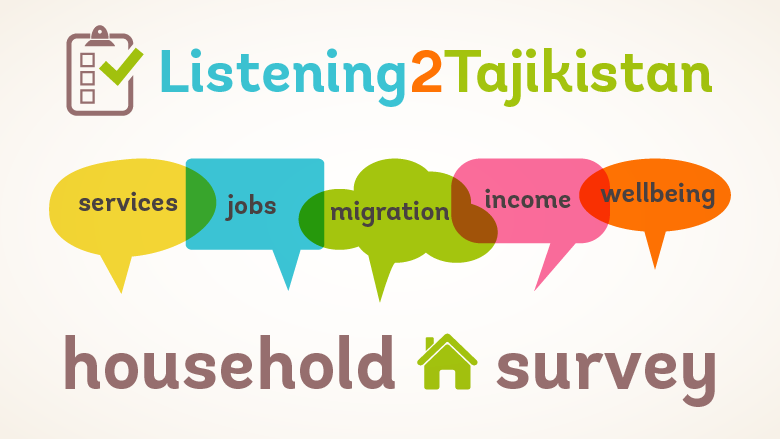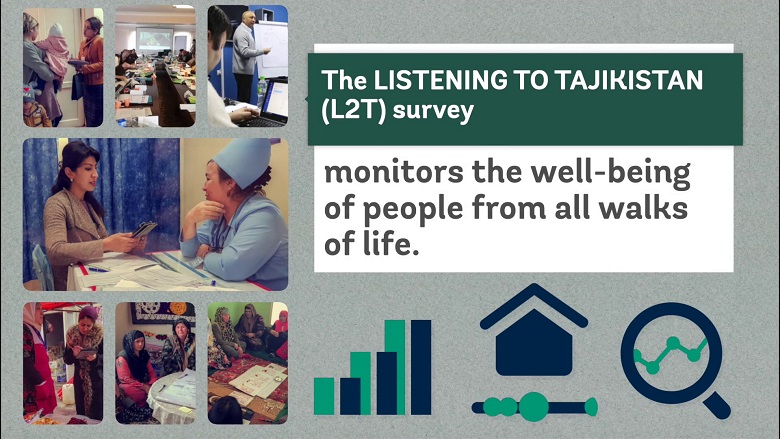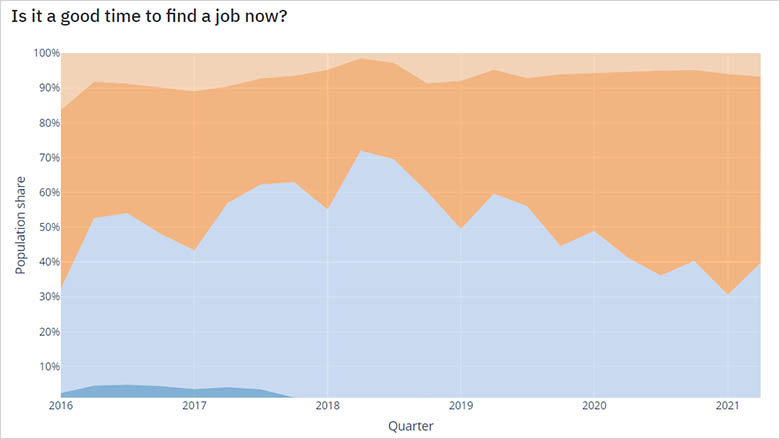Households in Tajikistan are particularly vulnerable to shocks, such as energy and water supply, climate change, food insecurity and dependence on remittances that predominantly originate in Russia. In May 2015, the World Bank launched a “Listening to Tajikistan” (L2T) survey to understand the severity of shocks on households and monitor their wellbeing over time.
Over 1,200 households from all regions of Tajikistan participate in the survey every month, through phone interviews. The study follows the same households over time, collecting their personal views and details about how their livelihoods change from one month to the next. The survey focuses on key dimensions of wellbeing – including on remittances, jobs, food security, and services.
While L2T monitors household wellbeing across core themes, it is a flexible tool that allows for the addition of new modules, even for a short period of time. For instance, in April 2020, the survey was adapted to respond to the COVID-19 outbreak. New modules were later incorporated to monitor the impacts of the pandemic on households and the effectiveness of mitigation policies. In 2021, an additional module was included for several months to solicit perceptions about immigration to Tajikistan. Similarly, topics such as climate change and gender equality have been introduced to the survey over time.
The L2T survey results have helped raise awareness and shape the World Bank Group’s and other development partners’ development priorities in Tajikistan. The Government of Tajikistan has also relied on this data as a source for monitoring progress on key indicators of the Sustainable Development Goals (SDGs).
To learn more about the L2T findings, access the briefs linked on this page.
For questions about the L2T survey, please contact Alisher Rajabov, World Bank Senior Economist for Poverty and Equity in Europe and Central Asia, and Obert Pimhidzai, World Bank Lead Economist for Poverty and Equity in Europe and Central Asia.



